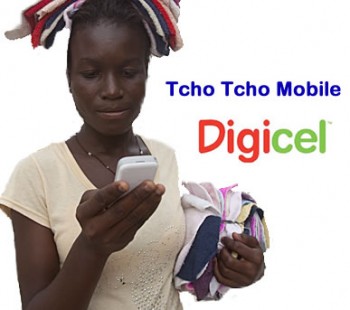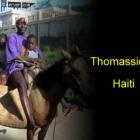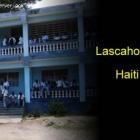ADVERTISEMENT
bank - Haiti Observer Blog
bank, Haiti Observer Blog. Read the following articles about bank
Jean Baden Dubois, new BRH governor, replacing Charles Castel
President Michel Martelly just nominated Mr. Jean Baden Dubois to head Haiti Central Bank (BRH). He replaced Charles Castel. With over 25 years of experience in Haitian banking, Mr. Jean Baden Dubois is very respected in the financial field in Haiti. He has developed many strategies to improve services to the public and increase employee productivity. His special skills are in his capacity to identify needs and bring effective solutions.
Haitian Kreyol:
Jean Baden Dubois , nouvo gouvènè BRH, ranplase Charles Castel
Prezidan Michel Martelly jis nomine Mesye Jean Baden Dubois nan tèt Ayiti Central Bank (BRH). Li ranplase Charles Castel. Avèk plis pase 25 ane eksperyans nan bank ayisyen, Mesye Jean Baden Dubois se yon moun ki respekte nan zòn finansye an Ayiti. Li te devlope anpil estrateji ki te kapab amelyore sèvis pou piblik la ak ogmantasyon pwodiktivite sou kote anplwaye yo. Konpetans espesyal l 'yo se nan kapasite l' pou idantifye bezwen ak pote solisyon efikas.
Inauguration of Centre de Convention et de Documentation, BRH
On November 17, President Martelly was present at the first major construction in the historic district of Port-au-Prince to inaugurate the Convention and Documentation Centre of the Bank of the Republic of Haiti (BRH) located at the corner of Paved streets and Quai. It also gave him an opportunity to pay tribute to a monument 'Memorial Victory', dedicated to the 14 employees of the bank who died in the 2010 earthquake. The monument is the last work of the great Haitian sculptor Ludovic Booz. The building has been built at a cost of $14.5 million as per earthquake and para cyclonic norms. It consists an administrative area, a multi-purpose exhibition space (900 square meters), two control rooms for simultaneous translation, five office space on the rue Pavée, four meeting rooms, a lobby (380 square meters), a foyer (300 square meters), one documentation area, a restaurant with capacity for 125 people and an artists' dressing room for musical and theatrical performance. The Head of the State invited other institutions to follow the example of the BRH. The center has been built to facilitate the revival of the historical center of Port-au-Prince.
Goat, a form of Bank account for Haitian Peasant
It is a truth universally acknowledged, that certain farm animals moonlight as bank accounts for many a Haitian family. Traditionally, the Haitian pig was the account of choice, but nowadays, after the massive failure of multiple governments where that asset is concerned, the people of Haiti who rely on these animals for more than just sustenance, have turned to the new 'Haitian's Best Friend' as more than just a good source of protein.
Appreciating the value of the goat to a peasant's ability to live on more than just a hand-to-mouth income, the Lambi Fund had undertaken a project through which goats were donated to needy families through the Asosyasyon pou Pwoteksyon Anviwonnman Gwomòn (APEG). Through the efforts of the Lambi Fund group, 132 goats were given to the APEG along with other necessary supplies. They also provided training to the 160 members of the APEG, who then transferred their knowledge to the receivers as the beginning of a chain set to create the sustainability of the undertaking.
Creole Pig, the bank account of the Haitian Peasant
There are many things that can be said that play on the Haitian peasant and the Creole pig, but there is true tragedy behind every punch line. In one of the government's single most devastating moves, done in the 1980's to placate the American's fear of a swine flu outbreak in the Dominican Republic contaminating their Pork industry, a nationwide slaughter of Creole pigs, noted to translate to 30% of the income of peasants, was undertaken.
Another serious misstep was the government's method of damage control. Seeing the devastation wrought on the livelihood of the peasant farmer, they attempted to replace what had been taken with American pigs from Iowa farmers. This too proved a failure, as the new breeds could not adapt to the inevitably harsher methods of farming, including but not limited to table scraps for food and no formal shelter.
Complaint against Jean-Bertrand Aristide by Members Victim of Cooperatives
A complaint was filed against Jean-Bertrand Aristide, former President, by the National Coordination of Members Victim of Cooperatives - (CONASOVIC) for conspiracy, fraud, theft and breach of trust.
Vast Swindling Leaves Members Ruined
CONASOVIC Coordonnateur, Rosemond Jean made clarifications that, former President of CNC - Council of Cooperatives, Henriot Petiote, Head of United Hearts, David Chery and former leader of the CADEC - Cooperative of Insurance Savings and Credit have also been pursued in the complaint by Members Victim of Cooperatives.
During the bankruptcy of 2002-2003, all assets had been lost by the financial cooperative members numbering thousands who had joined the scheme attracted by the 10% interest rate promised. There was a collapse of the get rich scheme due to the vast swindle thus leaving the members ruined and Haiti, much poorer.
The History of Bank of the Republic of Haiti (Banque de la Republique d'Haiti)
The Bank of the Republic of Haiti (known in French as Banque de la République d'Haiti) (BRH) serves as the main bank of Haiti. As a participant in the Alliance for Financial Inclusion, it promotes its own proprietary financial inclusion initiative.
Soon after Haiti drove the French off the island, it reclaimed its status as a sovereign state. First mention of BRH occurred in a brief exchange of letters in September 1825. A German corporation, Hermann Hendrick and Co. (HHC), wanted to start a bank in newly-freed Haiti. They hired George Clark to draft a proposal, which was reviewed by Nicholas Kane, foreign liaison between HHC and Balthazar Inginac, Haiti Secretary of State. The proposal was rejected and Haiti's first bank would wait decades to become established.
Privately-Held Banque de l'Union Haitienne a Haiti Success Story
Banque de l'Union Haitienne (BUH), Haiti's first privately-held bank, with a full range of banking services, was established in 1973. Clifford Brandt, a Haitian corporate businessperson, partnered with Banco Popular Dominicano of the Dominican Republic (BPDDR) to create the bank. He and BPDDR's president, Alejandro Grullon, met to begin the process for launching Haiti's first private bank in 1973. With Grullon's approval, a pre-planning committee was set up to incorporate BPDDR's rules and regulations in order to be in conformance with its holding company.
In a meeting on June 2, 1973, 420 shareholders voted for the creation of BUH. Also at this gathering, it planned its regulatory structure, and selected a nine-member Board of Directors and a Controller.
Operation Gason pa kanpe by Government Commissioner Me Lucmane Delile
In a bid to keep Haiti communities safe and secure, the authorities are now going after criminals and suspicious individuals. Commissioner of the Government Me Lucmane Delile launched the "Gason Pa Kanpe" campaign that is meant to catch criminals and stop them from inciting fear among the public. The campaign started strong, with more than 25 arrests in just a couple of days. Every kind of criminals, including kidnappers and drug dealers, are getting targeted by the campaign.
Lucmane Delile said the campaign"Gason Pa Kanpe" is just beginning, as they plan to go after criminals even harder. He shared that officials started rounding out criminals in the capital of Port-au-Prince, where they questioned and investigated a number of suspects. Officials are also setting their sights on various areas such as banks and neighborhoods with high crime rates. They are determined to make people safe in going to banks because there were instances wherein criminals went after their victims while the latter are doing bank transactions.
Government Commissioner, Jean Renel Senatus, to crack down on beggars, how far will he go?
Let me put it this way instead. Can Government Commissioner, Jean Renel Senatus, really crack down on beggars in Haiti?
To be fair to the Government Commissioner, he made the point that he is referring to beggars in front or near banks. "There are beggars, who are part of networks of thieves who stand in front of the BRH to the Rue Pavée, in front of the BNC, of commercial banks and serve as scouts for thieves".
If we had to come up with the real list of beggars in Haiti, I assume that the list would be pretty long. I have a few names:
1) The people at Airport Toussaint L'Ouverture who want to help you with your bags whether you want it or not.
Tcho Tcho Mobile, Haitian banking revolution by Digicel
I just learned that Digicel has launched its new mobile phone.
Tcho Tcho mobile is the name of the new mobile phone service introduced to the Haitian population.
This service is expected to make the lives of many Haitians very easy. Soon your new Tcho Tcho Mobile bank will allow you to conduct many banking activities fast, conveniently and safely. the services include: deposits, cash withdrawals and transfers.
All these banking services will be a click away from your cell phone. Tcho Tcho Mobile is intended to provide its services to up to 20,000 users during the initial first three months and will eventually increase its capability to serve the entire Haitian population very shortly.
Our objective is to share with you news and information about Haiti and the people of Haiti. Traditions, habits and the way we were or grew are alive in this site. We highly recommend that you Subscribe to our Newsletter and also share with us some of the things that are memorable and made us unique people.


 Thomassique, Haiti
Thomassique, Haiti  Haitians are a Proud People
Haitians are a Proud People  Lascahobas, Haiti
Lascahobas, Haiti  Life After Death
Life After Death  Battle of Vertieres
Battle of Vertieres